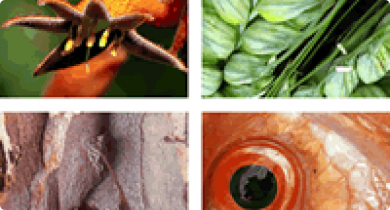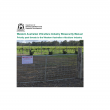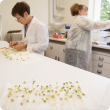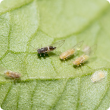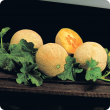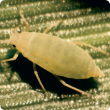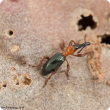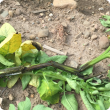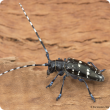Biosecurity & quarantine
The Department of Agriculture and Food, Western Australia (DAFWA) works with primary industries to safeguard our agricultural resources from biological threats and to maintain our export opportunities.
The State’s reputation is underpinned by a comprehensive biosecurity and quarantine system, developed and operated by DAFWA.
DAFWA is involved with:
- creation of surveillance and diagnostic programs
- animal and plant risk assessments
- importing and exporting requirements
- creating mechanisms to respond to incursions
- livestock movement and identification
- development and maintenance of biosecurity and quarantine legislation.
To find out more about what we do to protect agricultural production and export opportunities within the State please search our website.
Filter by search
Filter by topic
- Biosecurity (98) Apply Biosecurity filter
- (-) Remove Plant biosecurity filter Plant biosecurity
- Pests, weeds & diseases (79) Apply Pests, weeds & diseases filter
- Crops (72) Apply Crops filter
- Horticulture (62) Apply Horticulture filter
- Diseases (44) Apply Diseases filter
- Pests (32) Apply Pests filter
- Fruit (32) Apply Fruit filter
- Pest insects (24) Apply Pest insects filter
- Vegetables (19) Apply Vegetables filter
- Fungi (18) Apply Fungi filter
- Quarantine (12) Apply Quarantine filter
- Citrus (12) Apply Citrus filter
- Potatoes (12) Apply Potatoes filter
- Grapes & wine (11) Apply Grapes & wine filter
- Emergency response (11) Apply Emergency response filter
- Nursery & cutflowers (9) Apply Nursery & cutflowers filter
- Viruses & virus-like (7) Apply Viruses & virus-like filter
- Table grapes (7) Apply Table grapes filter
- Tomatoes (7) Apply Tomatoes filter
- Bacteria (6) Apply Bacteria filter
- Agricultural emergency response (6) Apply Agricultural emergency response filter
- Grains (5) Apply Grains filter
- Intrastate movement (5) Apply Intrastate movement filter
- Crop diseases (5) Apply Crop diseases filter
- Wine grapes (4) Apply Wine grapes filter
- Livestock & animals (4) Apply Livestock & animals filter
- Livestock biosecurity (4) Apply Livestock biosecurity filter
- Invasive species (4) Apply Invasive species filter
- Bananas (4) Apply Bananas filter
- Importing to Western Australia (4) Apply Importing to Western Australia filter
- Minor fruits (3) Apply Minor fruits filter
- Onions (3) Apply Onions filter
- Weeds (3) Apply Weeds filter
- Pastures (3) Apply Pastures filter
- Mangoes (3) Apply Mangoes filter
- Livestock species (3) Apply Livestock species filter
- Bees (3) Apply Bees filter
- Agricultural emergency preparedness (3) Apply Agricultural emergency preparedness filter
- Irrigated crops (3) Apply Irrigated crops filter
- Food, export & investment (3) Apply Food, export & investment filter
- Export services (2) Apply Export services filter
- Garlic (2) Apply Garlic filter
- Pest animals (2) Apply Pest animals filter
- Control methods (2) Apply Control methods filter
- Biosecurity and Agriculture Management Act (2) Apply Biosecurity and Agriculture Management Act filter
- Agricultural exports (2) Apply Agricultural exports filter
- Biosecurity governance (2) Apply Biosecurity governance filter
- Capsicums and chillies (2) Apply Capsicums and chillies filter

